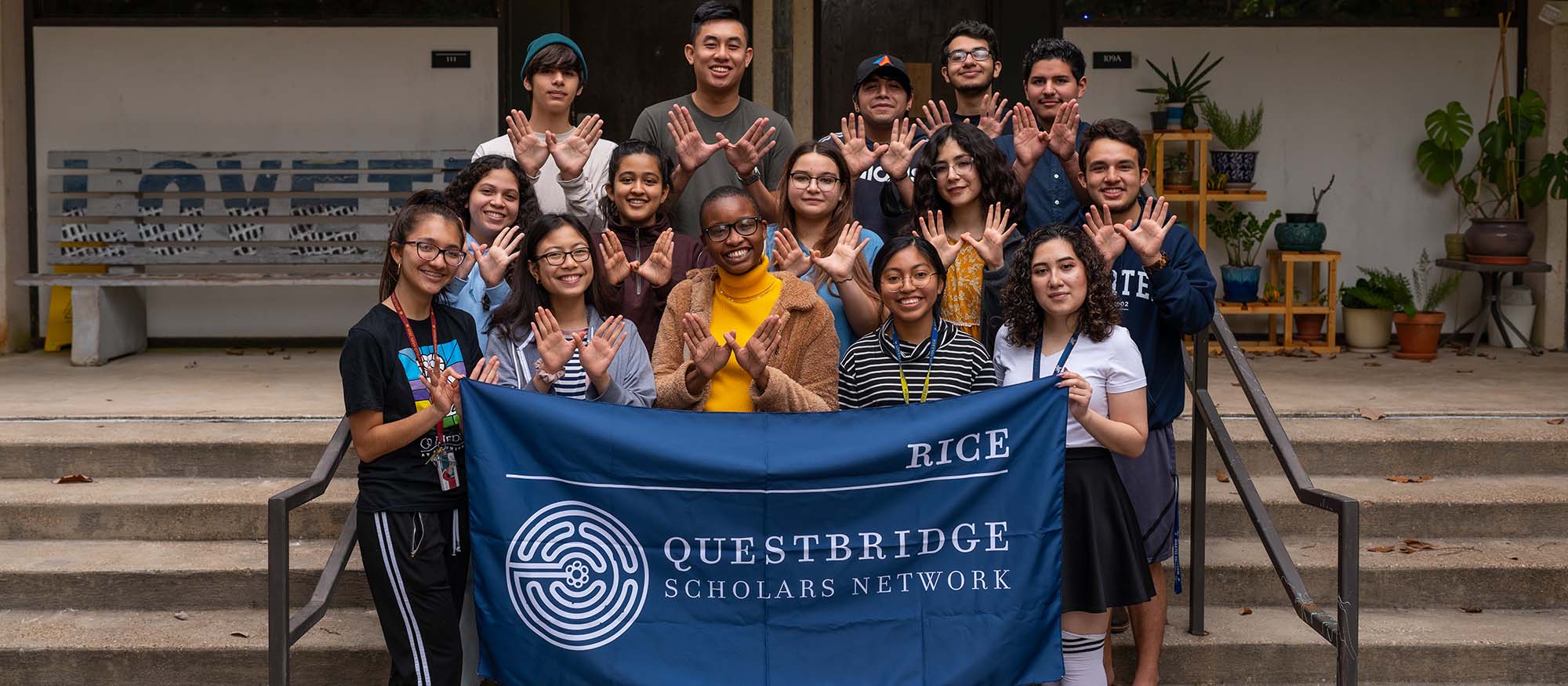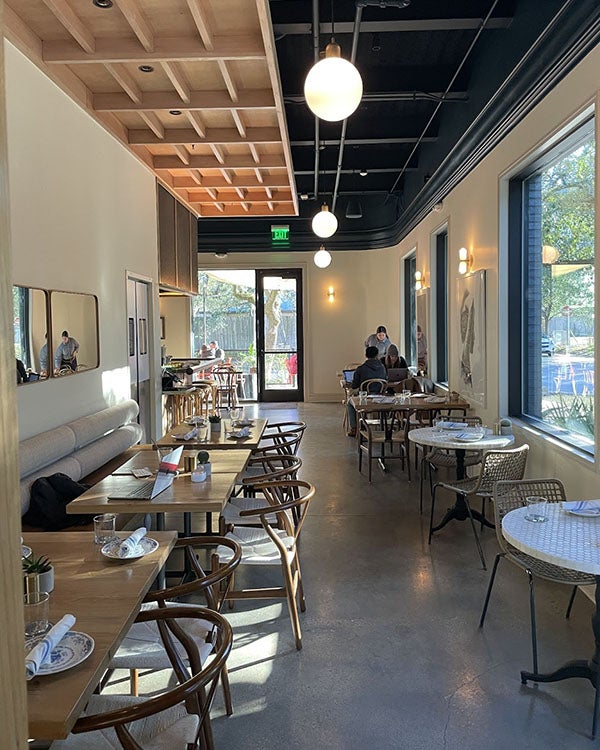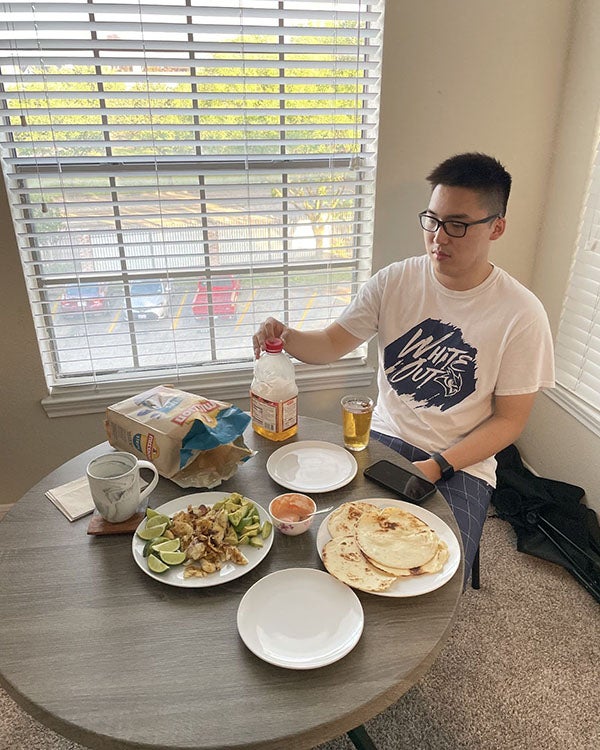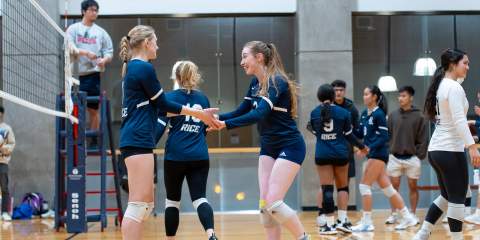Hey! I’m Channing Wang, a very recent graduate from Duncan who majored in economics! My hometown is Wells, Maine and my parents are immigrants from China and Malaysia. On campus, I was a member of the Rice Thresher, Rice QuestBridge Scholars Network, as well as a FLI (First-Gen/Low Income) Ambassador for the Student Success Initiatives office. I don’t consider myself an artist, but I love photography. My favorite place to go is HEB, and I never leave home without my water bottle.

How did you start the process of searching for off campus housing?
My friends made a spreadsheet and everyone started putting in details of places that they found online.
What resources did you use to help your search? What resources does Rice provide to help students who are looking for off-campus housing?
HAR (Houston Association of Realtors) was a very valuable resource and a very intuitive way to search for apartments and houses. I was focused on apartments close to campus, so I also just entered “apartment complexes” into Google maps and looked at the ones that were close to campus. Rice now has the Off-Campus Housing website, which I think has improved a lot since it was created a couple of years ago. It doesn’t have all the possible options, but it seems more listings are being posted there and it is continuing to gain traction. I think this is a great, accessible platform and hope it continues to grow.
In what ways did you stay connected to on-campus students and your residential college?
I still came to campus for classes so I spent almost all of my weekdays on campus. I had a meal plan because I preferred to eat with my friends at the servery instead of eating at home. I would often stay until after dinner and then go home in the evening. I loved running into people on campus, whether it was walking around or sitting at Brochstein. I still went to most of my college’s events such as FITQs or just eating in the commons in order to keep that connection. It was pretty common for me to be on campus from 10 a.m.-10 p.m. I think being a senior made me want to spend as much of the time I had left around campus and enjoying that experience.
Did you feel like you were more connected to things going around in the city of Houston/the neighborhood surrounding Rice?
I think moving off campus does encourage you to engage more with Houston, at least to some extent. I did feel more like a Houstonian when I had to run errands, go grocery shopping at HEB and commute from home to school. I will say it is much easier to enjoy things around Houston if you have a vehicle; unfortunately that is just the way it is designed. I loved visiting Buffalo Bayou Park, especially around sunset, and trying coffee shops around campus with my friends.


What advice would you give students, especially students who might be FGLI (First-Generation Low Income), who might be nervous about the prospect of finding off campus housing and living off campus?
The advice I always like to give students is that it is okay and often better to ask for help. Students tend to live at the same apartment complexes, on the same streets, or rent from the same management companies. I would encourage them to ask around whether it is their advisors, their college group chats, or any of the FGLI (First-Generation Low Income) group chats. If you ask “do you know someone who has lived on Bolsover or at ____ apartments?” it usually doesn’t take that long to find someone who fits the criteria. I don’t know if every college does this, but at Duncan we have an OC Representative and I think something similar should be translated to all the colleges.
A lot of FGLI students have mentioned the wonderful experiences they have had using a realtor to help them find somewhere to live. Realtors are free in Houston and I think it is nice because you could simply tell them what you are looking for and they can help you find the best available options.
Lastly, one of the initiatives we started as a QuestBridge Chapter last year was hosting an off campus housing panel. We had 5 students, all with different living situations, share their experiences and give advice with a focus on FGLI students. We tried to advertise to as many FGLI students across campus as we could and I think it was generally well received. I’m confident that this initiative will continue to expand and we will create more resources for FGLI students.
Keep Exploring
What exactly is a residential college? Virginia, Wiess '27, admits she was hesitant about the system until she stepped on campus. Discover how Rice’s unique community transformed strangers into mentors and friends.
What is the secret to doing it all? Karlianna, Duncan ‘28, a Biochemistry (BS) and Psychology (BA) major, offers her practical, proven strategies for managing her packed schedule — and still finding time to thrive — at Rice.
Navigating college can be a challenge, especially when you have multiple passions. It can feel like you have to choose between them, but what if you could pursue them all? Dia, Will Rice ‘28, shares how she learned to do exactly that at Rice.
Helpful Links
713-348-7423
admission@rice.edu
M-F 8:30 a.m. to 5 p.m. CT


